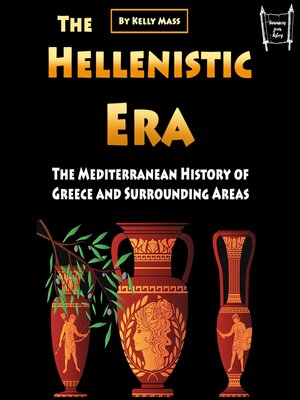The Hellenistic Era
audiobook (Unabridged) ∣ The Mediterranean History of Greece and Surrounding Areas
By Kelly Mass

Sign up to save your library
With an OverDrive account, you can save your favorite libraries for at-a-glance information about availability. Find out more about OverDrive accounts.
Find this title in Libby, the library reading app by OverDrive.



Search for a digital library with this title
Title found at these libraries:
| Library Name | Distance |
|---|---|
| Loading... |
This audiobook is narrated by a digital voice.
From the demise of Alexander the Great in 323 BC to the rise of the Roman Empire, marked notably by the Battle of Actium in 31 BC and the subsequent conquest of Ptolemaic Egypt, the Hellenistic period unfolds across Mediterranean history. Classical Greece denotes the epoch preceding the Hellenistic era, while Roman Greece characterizes the period succeeding it. The term "Hellenistic" originates from the Ancient Greek word Hellas (, Ellás), the widely recognized name for Greece. The distinction lies in the fact that "Hellenistic" pertains specifically to Greece, while "Hellenic" encompasses all regions under direct ancient Greek influence. In this context, "Hellenistic" extends to anything influenced by Greek civilization, particularly in the East post-Alexander the Great's conquests.
The Hellenistic period witnessed the zenith of Greek cultural influence and power, commanding the Mediterranean, large portions of West and Central Asia, and even segments of the Indian subcontinent. Progress flourished in arts, astrology, exploration, literature, theater, architecture, music, mathematics, philosophy, and science. Despite these achievements, it is often viewed as a transitional phase, marked by some as decadence or degeneration in comparison to the enlightenment of the Greek Classical era. Notable developments during the Hellenistic period include New Comedy, Alexandrian poetry, the creation of the Septuagint, and the emergence of Stoic, Epicurean, and Pyrrhonian ideologies. Euclid and Archimedes made significant contributions to Greek science. The religious landscape expanded to include new deities like the Greco-Egyptian Serapis, eastern figures such as Attis and Cybele, and a synthesis of Hellenistic culture with Buddhism in Bactria and Northwest India.







